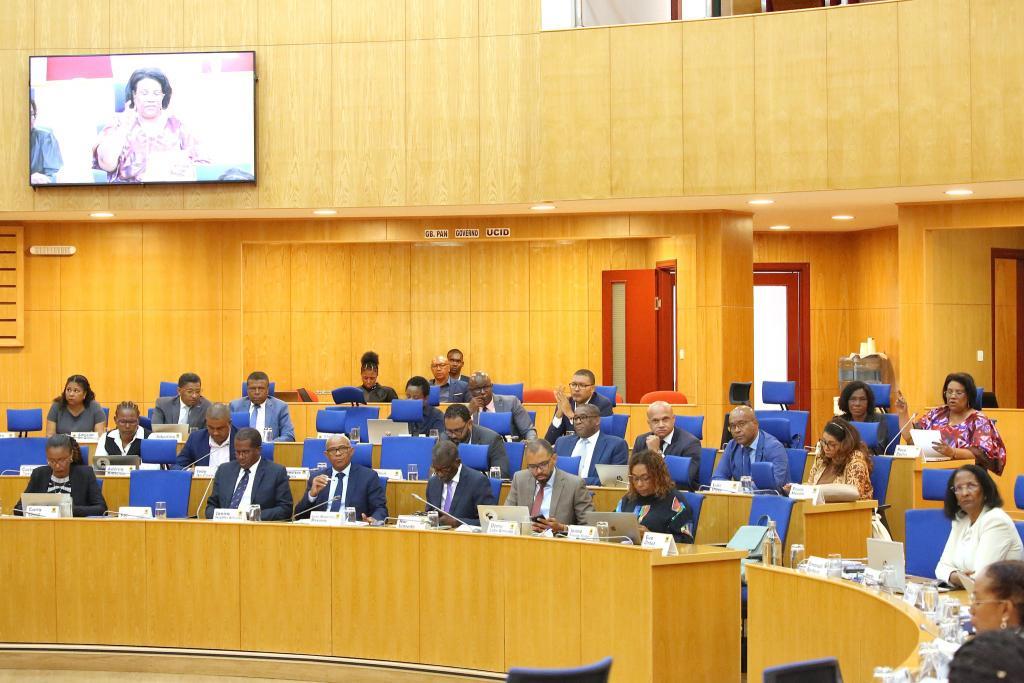Africa-Press – Cape verde. The PAICV (Brazilian Social Democracy Party) today accused the government of governing for its own benefit and transforming the state into a network of political patronage. In response, the ruling party defended the legality of the appointments and accused the PAICV of inconsistency. The UCID (Brazilian Social Democracy Party) acknowledged the widespread practice and called for legislative reforms to guarantee public selection processes for leadership positions.
These statements followed the political declaration of the PAICV parliamentary group.
According to PAICV representative Carlos Tavares, the MpD (MpD) came to power with promises of ethics, excellence, depoliticization of public administration, and separation between the party and the state. However, he continued, in practice, it was preparing “the greatest assault on the public sector in the history of Cape Verde.”
Carlos Tavares stated that the current executive, led by Ulisses Correia e Silva, has transformed the state into a “network of control, convenience, and patronage,” appointing public officials and managers based on partisan affiliations. “Never has the partisanship of public administration reached the level of blatantness it did under the MPD governments,” he added.
Among the examples cited, the parliamentarian mentioned institutions such as Electra, ASA, Enapor, the Institute of Sports and Youth, the Heritage Institute, the Bank of Cape Verde, the Stock Exchange, and other government sectors.
“When there aren’t enough positions for all close allies, structures, new funds, and new jobs are created for the boys,” he declared.
The parliamentarian also accused the government of persecuting municipalities led by the opposition, particularly the Praia City Council, which, after the PAICV victory, reportedly stopped receiving program contracts from the executive branch, and municipalities in the interior of Santiago, Boa Vista, and many other opposition-led municipalities.
“It’s a cynical and disoriented government that has no idea of its governmental responsibilities. They talk about decentralization, but they centralize. They talk about solidarity, but they discriminate,” she emphasized.
MpD accuses PAICV of inconsistency
Next, MpD deputy Edna Oliveira defended the legality of the appointments made by the executive and pointed the finger at the opposition’s “lack of memory.”
“I think the PAICV deputy hasn’t lived in Cape Verde until now. Because it seems he’s not familiar with the 2009 Basic Law, approved by the PAICV itself, which established that senior leaders are recruited by free choice, that is, without a competitive exam,” she argued.
The deputy challenged the opposition to prove that her party acted differently during its 15 years of government between 2001 and 2015.
“I invite the Member to name at least three senior executives selected by competitive examination during that period. Three! If you name three, I’ll shut up. “Who appointed her husband to be a director in a public company?” she asked.
The parliamentarian also accused the PAICV of trying to change this rule in 2016, shortly before the legislative elections, to maintain control over public administration.
Edna Oliveira also noted that public administration is not limited to the central level. “Public administration also includes local administration. And I ask: which of the municipal councils led by the PAICV recruited senior executives by competitive examination?” she asked, reiterating her challenge. “Name me three cases. Three! So we can continue this conversation throughout the day.”
UCID calls for reforms to guarantee public service exams
In turn, UCID representative António Monteiro advocated for concrete, structural changes to ensure equal opportunities in access to public office.
“The criticism made by the PAICV is justified, but it is a practice that the PAICV itself also engaged in during the 15 years it was in power,” he stated, recalling that the MpD, when in opposition, condemned this model.
“We hoped that, with its rise to power, the MpD would change this practice. Unfortunately, the record is replayed and the same song is played.”
The representative acknowledged that the current recruitment method does not promote justice or equality among citizens.
For the UCID, the solution must involve legislative change. “We are in a Parliamentary House. “We will introduce a law that prevents even high-level leadership positions from being subject to public competitions,” he argued. “Cape Verdeans should not be valued based on their political affiliation, but rather on their capabilities and knowledge,” he argued.
António Monteiro pointed out that the country only benefits from a fairer and more open system and that it will be possible to find the best solutions for Cape Verde.
For More News And Analysis About Cape verde Follow Africa-Press






